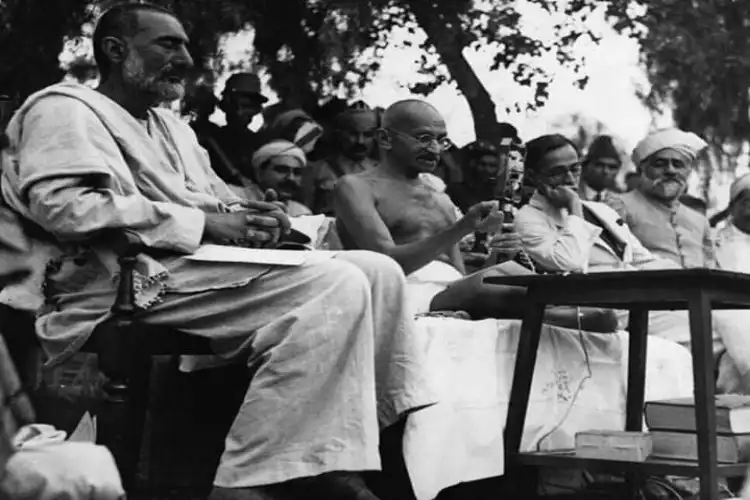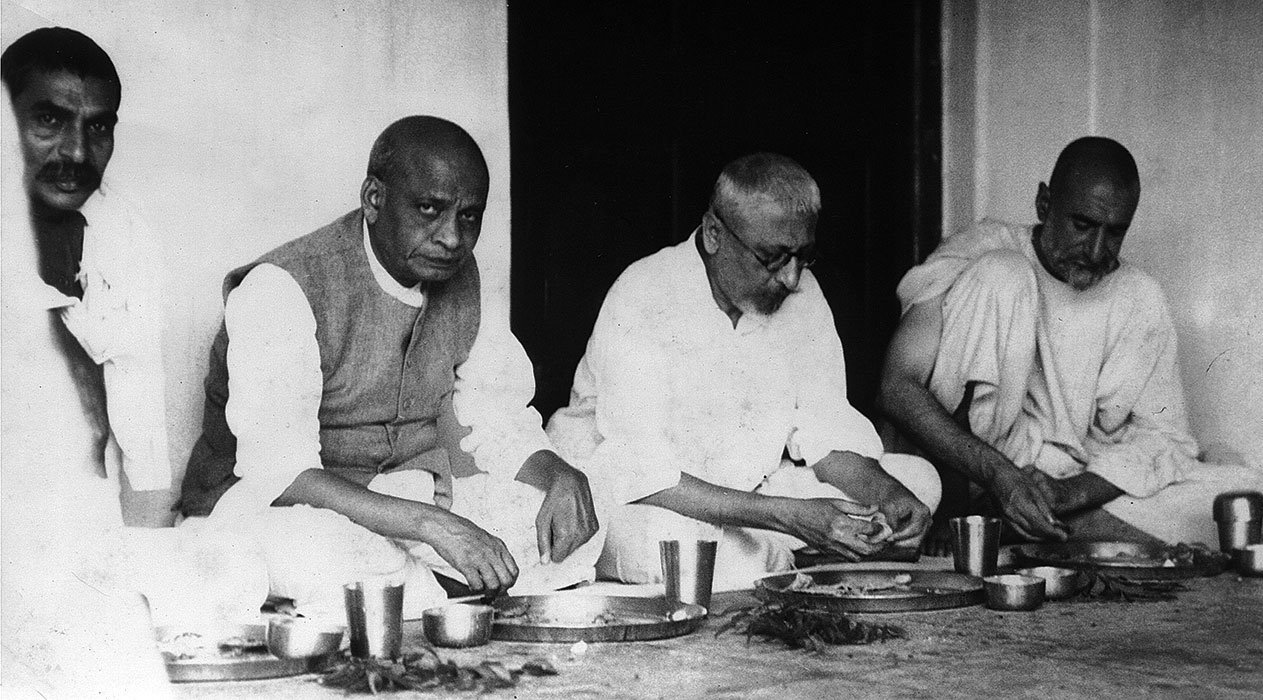
Saquib Salim
“My religion is truth, love, and service to God and humanity.” Khan Abdul Ghaffar Khan, popularly called Frontier Gandhi, described his religious faith with these words in his autobiography.
Ghaffar Khan was a nationalist leader who formed Khudai Khidmatgar (Servants of God), a socio-political organization, in Pathan-dominated North-West Frontier Province (NWFP). He remained committed to the freedom struggle and religious harmony of India throughout his life. In his autobiography, My Life and Struggle, Ghaffar Khan shared several incidents in jail where freedom fighters were kept by the English Government, which instilled feelings of unity among Muslims, Hindus and Sikhs.
Ghaffar Khan formed Khudai Khidmatgar in 1929 and started preaching the ideas of nationalism among Pathans of NWFP. The English government felt threatened with the growing popularity of the movement and arrested Ghaffar in April 1930. There was a massive outrage against his arrest in Peshawar. The army massacred hundreds of people at Qissa Khwani Bazar in Peshawar protesting against his arrest. After the arrest, he was taken to a prison at Gujarat (a town in Punjab, now in Pakistan) where other prominent leaders of the Indian Freedom Struggle were also imprisoned. Dr. M. A Ansari, Saifuddin Kitchlew, Ali Gul Khan, Sayyed Lal Badshah, Dr. Gopichand, Shyam Lalji, Hansraj, Pandit Jagat Ram, Zafar Ali Khan, Devdas Gandhi, and Mufti Kifayat Ullah were few of the most illustrious leaders in the jail with him.

Khan Abdul Gaffar Khan with Rajendra Prasad, Sardar Patel and Maulana Azad
In the jail, it was decided that while they all were struggling to win freedom for the country, training of running government was also needed. Therefore, a parliament was formed inside the jail by these leaders to train each other into how a parliament worked.
Ghaffar Khan knew the Quran so he started teaching the Quran to fellow prisoners. Interestingly, Sikhs and Hindus along with Muslims attended these lessons and learned the message of the Holy book. Pandit Jagat Ram, a Ghadar Party leader who was earlier imprisoned at Andaman, started similar classes to teach Gita to fellow freedom fighters. In this case, also, Muslims and Sikhs along with Hindus received the holy lessons of the Gita. Ghaffar wrote, “through our efforts, the Hindus among us learned about the Koran and the Muslims became familiar with the Gita”.
In the same prison, Sikhs approached the jailer complaining that no Jhatka (slaughtering according to Sikh religious custom) meat was available in Gujarat town, hence in the prison. Therefore, they should be provided with chicken meat and allowed to slaughter them according to jhatka. The jailer replied that if he allowed Sikhs for jhatka then Muslims would protest the decision. Listening to this argument, Sikhs approached Ghaffar Khan and asked him would Muslims have any problem if they slaughter chickens with jhatka. Ghaffar told them with the unanimity of all Muslim prisoners that just like Halal meat was a part of religious belief for Muslims, so did Jhatka meat is a matter of religion for Sikhs. Therefore Sikhs should have the right to have their jhatka meat.
Ghaffar Khan also studied Guru Granth Sahib, the holy book of Sikhs, while he was in Dera Ghazi Khan prison. These experiences made Ghaffar Khan a committed secular nationalist who fought against the idea of partition till his last breath.
